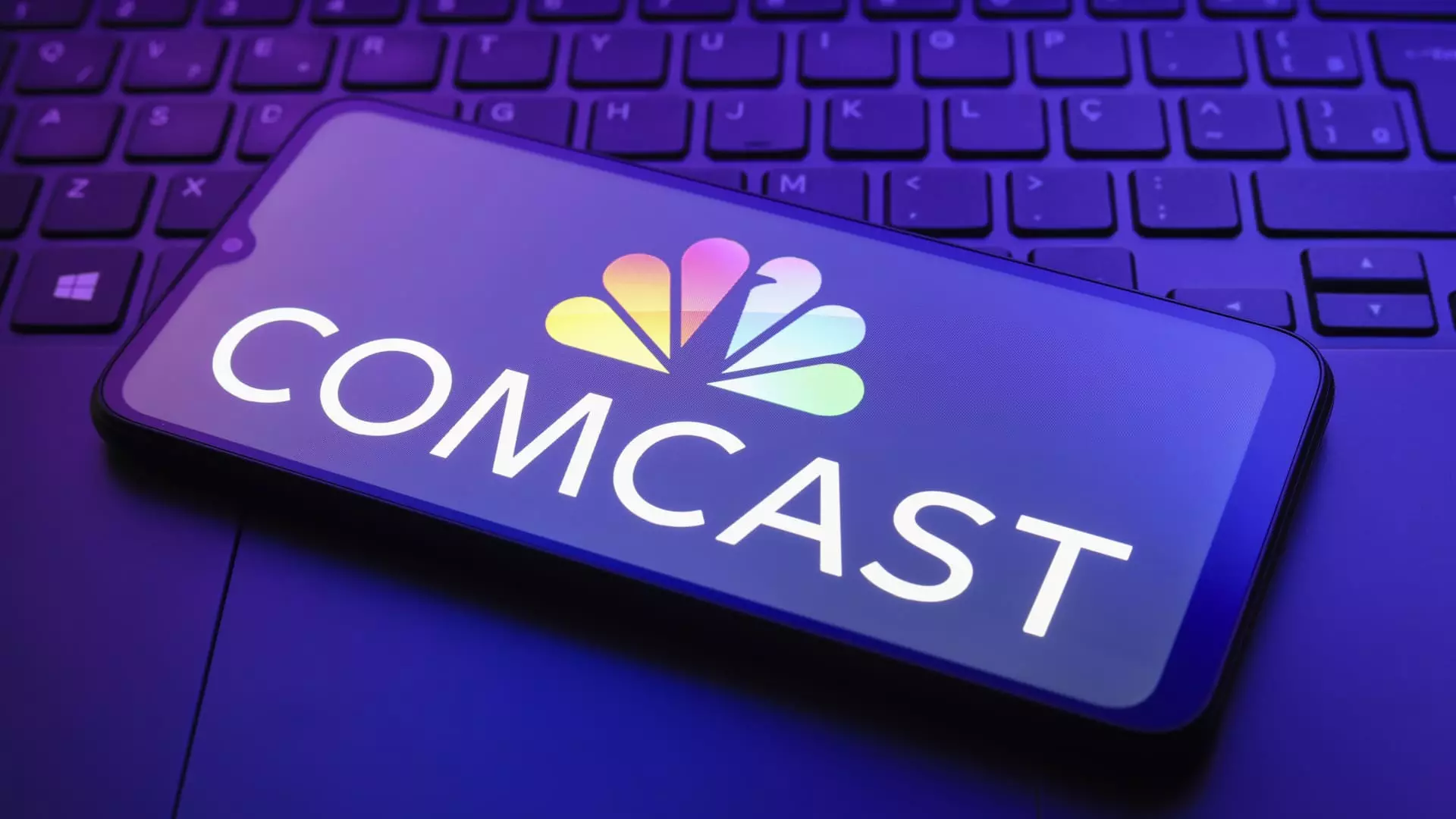In a world dominated by digital platforms, Comcast is set to redefine the advertising landscape with the introduction of its new platform, Universal Ads. As digital advertising continues to grow at an exponential rate, small and medium-sized businesses often find themselves overshadowed by the marketing budgets of tech giants. With the release of Universal Ads, Comcast’s initiative aims to create a simplified and efficient way for smaller companies to acquire advertising space on premium video content through traditional streaming channels. This is a strategic move designed not only to draw advertisers away from social media but also to revitalize traditional television advertising in an age where streaming services are flourishing.
Unveiled just before the Consumer Electronics Show (CES) in Las Vegas, Universal Ads signifies Comcast’s responsiveness to market demands. The platform allows advertisers to purchase ad placements across various media outlets, leveraging partnerships with notable companies including NBCUniversal, Xumo, and others in the entertainment sector. By cultivating a wide range of partnerships, Comcast hopes to attract new clients who have historically focused their advertising efforts on digital-first platforms. This collaboration aims to create a cohesive ecosystem where advertisers can streamline their ad purchases rather than grappling with the complexities of negotiating deals with multiple media outlets.
One of the significant challenges advertisers face is navigating the intricate landscape of traditional media buying. James Rooke, the president of Comcast Advertising, highlighted that engaging with traditional platforms has often proven cumbersome compared to the user-friendly interfaces of tech giants like Meta or Google. Universal Ads is designed to mimic the intuitive experiences familiar to users of social media, providing a self-service interface that makes ad purchases more accessible. Rooke’s observation that many businesses have established themselves on social media underscores the imperative to offer an alternative that diversifies their advertising spend.
The platform’s development is powered by FreeWheel, a technology division of Comcast that has facilitated advertising for many partners. This platform is not just a tool for buying advertising space but also includes the introduction of automated AI features that aid in ad creation. This aspect of Universal Ads is particularly crucial for small businesses, which often struggle with the resources required to produce high-quality advertising content. By alleviating some production burdens through AI tools, Comcast opens the door for businesses that might otherwise consider advertising beyond their reach.
The media landscape is evolving, with viewers increasingly favoring streaming services over traditional television. Comcast’s endeavors with Universal Ads aim to address the significant shifts in viewer behavior, particularly among younger demographics that have gravitated towards platforms like TikTok and YouTube. As Nielsen reports indicate, these platforms capture substantial portions of viewing time, necessitating a tactical repositioning for traditional media companies. As advertisers reassess their strategies, the establishment of Universal Ads resonates with them by providing options outside the entrenched realm of social media, which has thus far ruled the advertising domain.
Despite traditional TV’s high efficacy as an advertising platform, the reality remains that social media and digital advertising are expanding rapidly. Reports from industry experts indicate that pure digital advertising is expected to grow significantly, overshadowing traditional media ad revenues. Mark Marshall, NBCUniversal’s advertising lead, pointed out that while the scale of advertisers on platforms like Meta is staggering, it underscores a growing opportunity for Comcast to capture market share. This revelation emphasizes the urgency for Comcast and other traditional media companies to innovate and evolve in a landscape dominated by digital solutions.
Universal Ads is not just about reshaping Comcast’s own market position; it’s fundamentally about empowering small and medium-sized businesses that have struggled to gain visibility. Many of these entities face unique challenges in managing marketing campaigns across diverse advertising platforms. Comcast’s initiative seeks to bridge this gap by providing a comprehensive solution that places smaller businesses on a level playing field with their larger counterparts. The strategy to reach small and medium-sized businesses aligns with industry trends favoring flexibility and efficiency in ad spending.
Cooperation among various media outlets is crucial in this competitive landscape where digital channels dominate. By building alliances with other major companies, Comcast aims to provide a unified platform that potentially attracts more advertising dollars away from siloed digital platforms. This collaborative spirit could reinvigorate the entire advertising ecosystem, allowing advertisers to explore broader avenues for reaching consumers. The common sentiment among media executives is that while traditional television still holds value, there’s a merging of traditional and streaming considerations that shapes advertising strategies moving forward.
Comcast’s Universal Ads is a bold attempt to carve a niche within the evolving advertising landscape, amidst the specter of large-scale digital platforms. As traditional media grapples with shifting consumer habits and advertising dollars moving toward digital spaces, initiatives like Universal Ads can provide the necessary advancements that will keep traditional television relevant. If successful, this platform could significantly reshape how advertisers think about where and how to allocate their budgets, particularly those from small to medium enterprises. The future of advertising depends on collaboration, innovation, and the ability to pivot in a rapidly-changing environment, and Comcast seems to recognize these imperatives as it launches this new initiative.

